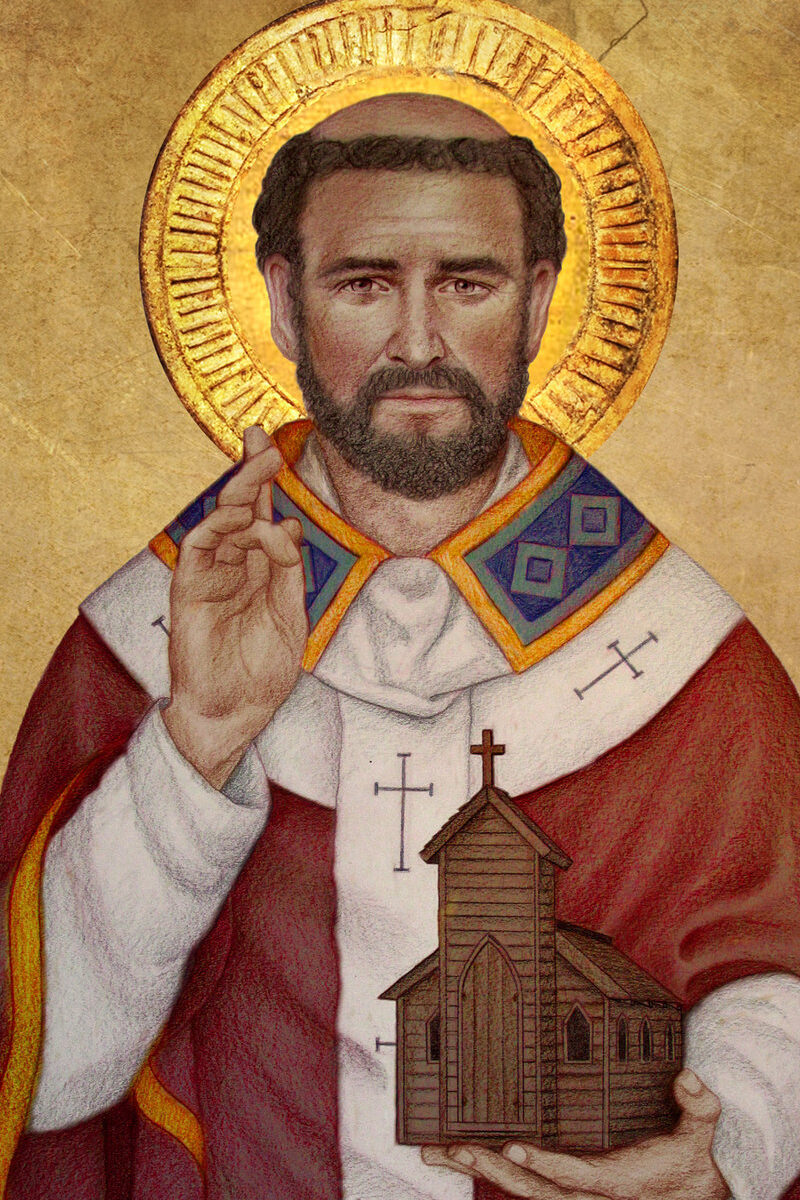This past Sunday we celebrated the first Sunday of Advent together and our text was the one above from the prophet Isaiah (40:1-7). In his reflection on this passage, Stuart drew out three key ideas that can be found below under the headings ‘Christ the Lord of History’, ‘Christ the Tender Heart of God’, and ‘Christ the Coming One’. But first, a reminder of the word of God that came to us.
Comfort, O comfort my people,
says your God.
Speak tenderly to Jerusalem,
and cry to her
that she has served her term,
that her penalty is paid,
that she has received from the Lord’s hand
double for all her sins.
A voice cries out:
“In the wilderness prepare the way of the Lord,
make straight in the desert a highway for our God.
Every valley shall be lifted up,
and every mountain and hill be made low;
the uneven ground shall become level,
and the rough places a plain.
Then the glory of the Lord shall be revealed,
and all people shall see it together,
for the mouth of the Lord has spoken.”
A voice says, “Cry out!”
And I said, “What shall I cry?”
All people are grass,
their constancy is like the flower of the field.
The grass withers, the flower fades,
when the breath of the Lord blows upon it;
surely the people are grass.
The grass withers, the flower fades;
but the word of our God will stand forever.
Christ the Lord of History
In Isaiah’s day the nation of Israel had been through some very hard times and knew what it was to suffer great pain and oppression at the hands of others. They had seen all that they had loved and treasured, all that was sacred and holy to them, destroyed and reduced to rubble by pagan outsiders. Many of them were had been torn from their homeland and marched across desert lands and into exile in a foreign land.
It is into this context that the prophet reminds them that God is Lord of History and is outworking his saving purpose despite the wickedness of men. Isaiah declares that empires built upon the backs of slave and ro the pride and arrogance of man might be raised up like valleys but they will also be brought low and humbled like the mountains. Generations come and generations go and we too, just like grass, are here one day and gone the next. But, Isaiah says, but the Word of the Lord stands forever.
The experience of life can bring deep wounds but here we have a response from heaven, the healing balm of comforting news. Isaiah sees that a day is coming when the nations will see something wonderful, a light is going to shine, glory is going to be revealed and there will be salvation, a sign of hope in a hopeless world. Many years later, when the apostle Peter is reflecting on all that he had experienced, he draws upon these words of Isaiah and says that the word of the Lord that endures forever is nothing other than the good news of Jesus Christ that was now being announced (1 Pet. 1:25).
Christ the Tender Heart of God
With the coming of Jesus we have the fullest revelation and revealing of the true heart of God toward the world and this heart is a tender heart. This compassion and love is felt in this passage as God asks the prophet to speak tender words of comfort to a broken and disconsolate people. The words of the old hym come to mind.
‘There is no place where earth’s sorrows are more kindly felt than heaven:
there is no place where earth’s failings have such gracious judgement given’.
And now, as we wait for Christmas we remember that God continues to speak most tenderly to us through the vulnerability of a baby entrusted to the virgin Mary. In the birth of Jesus we see the willing vulnerability of God who trusts himself to men of grass, fleshly people who he knows will crucify him.
Christ the Coming One
The words of Isaiah contain many of the traditional Christmas readings for he, perhaps more clearly than anyone else, announces that salvation is coming to the world. This coming salvation is then revealed and embodied in the arrival of the Messiah Jesus. In the Gospels, Jesus was the one who was to come and he is still for the us the coming one: He is on his way and healing is coming. The Great Physician is coming to heal the human heart, to bind up wounds, an to heal the broken hearted.
You may have recognised some of the words from todays passage as they are used in Luke 3:4-6 to describe the life and ministry of John the Baptist. John is unveiled as the voice calling in the desert, ‘make a clear highway for God to come. Get the rubble out the way because the Glory of the Lord will be revealed to all mankind’.
But before John is even on the announced to the world, Luke introduces us to Simeon, someon who we are told was waiting for the comfort or consolation of Israel. – the comforter. Jesus. Simeon sees the baby and that’s all he needs to see – he’s happy to go now for his eyes have seen in the child all the fulfilment of God’s promises to bless and restore his people.
The true consolation, the genuine comfort is that God has become one of us – came from the highest place to the lowest place.

“He appeared a man, but the divine majesty and glory of the Father shone on earth. How great, then, is the hope of the grass since the Word has been made flesh? He who abides forever has not disdained to assume grass, that the grass might not despair of itself. The coming one will lift us out of despair. He will comfort his people.”
— St Augustine

